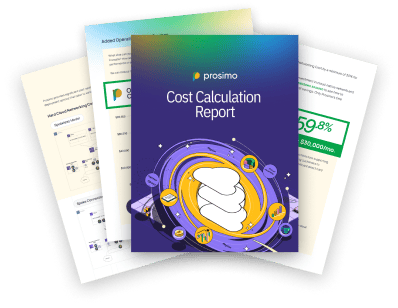In today’s fast-paced digital world, businesses are always looking for new ways to work smarter and more securely. Cloud migration stands out as a major breakthrough in this effort, enabling companies to transfer their operations and data to cloud-based platforms. But the real game-changer comes when businesses combine cloud migration with Artificial Intelligence (AI). This powerful duo doesn’t just streamline operations—it revolutionizes them.

Cloud Migration and AI Integration
Discovering Cloud Migration
Fundamentally, cloud migration involves transferring applications, data, and essential business components to a cloud computing environment. This transition provides unmatched flexibility, accessibility, and cost-effectiveness, making it essential for contemporary digital transformation strategies.
Unleashing the Potential of Artificial Intelligence
Artificial Intelligence (AI) involves machines simulating human intelligence processes. When seamlessly integrated with cloud migration, AI empowers businesses with predictive analytics, process automation, and invaluable data insights. This dynamic combination transforms cloud migration from a mere procedure into a pivotal strategic investment.
Advantages of AI-Driven Cloud Migration
- Enhanced Efficiency and Streamlined Processes: AI automates complex tasks involved in cloud migration, reducing the need for extensive human intervention. This automation not only saves time but also minimizes the likelihood of errors.
- Predictive Analytics for Informed Decision-Making: AI’s predictive analytics capabilities enable businesses to anticipate potential challenges during migration. By identifying potential bottlenecks or issues in advance, businesses can plan effectively and mitigate risks proactively.
- Cost Optimization and Efficient Resource Allocation: AI plays a crucial role in optimizing cloud resources. By analyzing usage patterns and dynamically allocating resources, AI ensures businesses only pay for what they utilize. This leads to significant cost savings and efficient resource management.
Ensuring Data Security and Compliance in Cloud Migration
- Data Encryption and Decryption: AI algorithms play a critical role in ensuring data security during cloud migration. They encrypt sensitive data before it leaves the organization’s premises and decrypt it upon arrival at the cloud destination. This end-to-end encryption adds an extra layer of security, protecting data from potential threats.
- Compliance Checks and Regulatory Adherence: AI systems are adept at maintaining compliance with rigorous industry standards and regulations. Throughout the migration process, these systems perform real-time compliance checks, ensuring that data handling meets all legal requirements and industry regulations.
- Regular Data Backups and Disaster Recovery: AI-driven cloud solutions automate regular data backups as part of their operational routine. In the event of a data loss scenario, AI algorithms facilitate swift disaster recovery processes. This capability ensures minimal downtime and data loss, safeguarding business continuity and operational integrity.
Achieving Scalability and Performance Enhancement with AI-Driven Cloud Solutions
- Dynamic Resource Allocation: AI continuously monitors and adjusts cloud resources based on real-time demand. This dynamic allocation ensures that businesses have sufficient computing power exactly when needed, optimizing performance and user experience.
- Predictive Scaling for Unprecedented Scalability: AI’s predictive scaling capability forecasts future resource requirements using historical data. This proactive approach allows businesses to scale their cloud resources preemptively, preventing performance bottlenecks during peak usage periods.
- Enhanced Performance Across the Board: AI analyzes data patterns and user behaviors to optimize application and service performance in real-time. This optimization results in quicker response times, increased user satisfaction, and overall enhanced productivity.
Best Practices for Successful Cloud Migration with AI
- Thorough Assessment: Begin with a comprehensive analysis of your current infrastructure, applications, and data sets. This assessment forms the foundation for a customized migration plan tailored to your business needs.
- Detailed Planning: Develop a meticulous migration plan that details the sequence of migration steps, resource allocation strategies, and contingency measures for unforeseen challenges.
- Rigorous Testing: Prior to full-scale migration, conduct thorough testing in a controlled environment. Simulating migration scenarios helps identify potential issues and bottlenecks, allowing for preemptive resolution.
- Systematic Deployment: Execute the migration plan systematically and in phases to minimize disruption to ongoing operations. Ensure each component is migrated smoothly and validated before proceeding to the next phase.
- Continuous Monitoring: Implement real-time monitoring tools to track the progress of migration activities. This proactive approach enables prompt identification and resolution of issues as they arise, maintaining project momentum.
- Post-Migration Optimization: After migration, optimize cloud resources based on performance metrics and user feedback. Fine-tuning ensures optimal efficiency, enhances user experience, and maximizes the benefits of cloud technology integrated with AI.
Conclusion
The integration of Artificial Intelligence (AI) with cloud migration represents a transformative leap forward for businesses aiming to enhance efficiency, security, and scalability. Cloud migration itself provides unparalleled flexibility and cost-effectiveness, enabling organizations to adapt swiftly to evolving market demands. However, when coupled with AI, this transition becomes not just a shift in infrastructure, but a strategic investment in future-proofing operations.
AI’s ability to automate complex tasks streamlines the migration process, minimizing errors and optimizing resource allocation. This automation not only saves time but also empowers businesses with predictive analytics, enabling informed decision-making and proactive risk management. By analyzing data patterns and user behaviors in real-time, AI ensures optimal performance and enhanced user satisfaction across cloud-based applications and services.
Data security remains paramount during cloud migration, and AI plays a crucial role in encrypting sensitive information and maintaining regulatory compliance throughout the transfer process. Additionally, AI-driven disaster recovery mechanisms ensure business continuity by swiftly restoring operations in the event of a disruption.
For businesses looking to advance their cloud migration strategy, leveraging AI-driven solutions offers a competitive edge. Prosimo, with its comprehensive multi-cloud and cloud networking services, provides a robust foundation for organizations seeking seamless integration and enhanced operational efficiency across cloud environments. Embrace the power of AI in your cloud migration strategy today to unlock unparalleled scalability, performance, and security for tomorrow’s digital needs.
